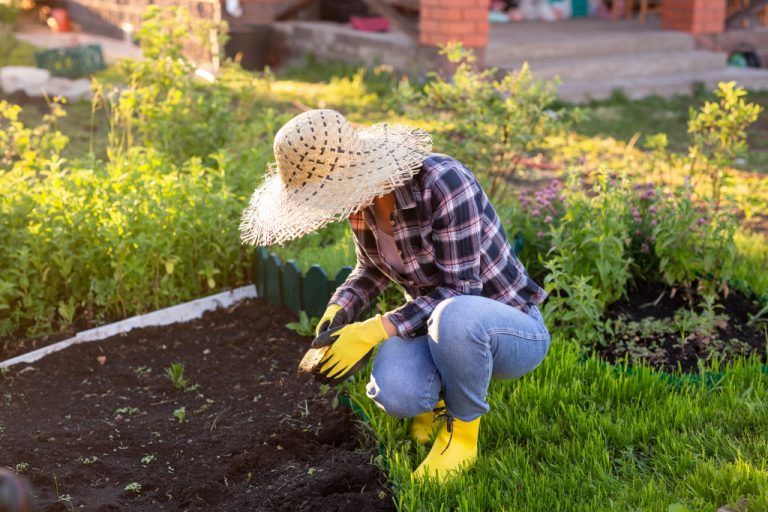- Gardening can reduce stress, improve physical health, and increase happiness.
- Eating healthy can help lower blood pressure, improve heart health, prevent obesity, and reduce the risk of type 2 diabetes and other chronic diseases.
- Regular gardening tasks such as watering, weeding, fertilizing, and pest control are necessary to maintain a healthy garden.
- Enlisting the help of professional gardeners and utilizing automated technologies are effective solutions for home gardeners.
- Sensors can monitor soil moisture and temperature for optimal plant health.
Health is a crucial component of living a happy and fulfilling life. Even when staying at home, it’s important to prioritize health and well-being. Building a garden can provide many environmental, economic, and health benefits. Research has shown that gardening can reduce stress, improve physical health, promote mindfulness, and increase happiness.
Access to fresh fruits and vegetables can also enormously impact the quality of one’s nutrition. According to the CDC, eating healthy helps lower blood pressure, improve heart health, prevent obesity, and reduce the risk of type 2 diabetes and other chronic diseases like cancer and heart disease. Additionally, research suggests that people who grow their food are more likely to consume higher amounts of vegetables than those who do not.
However, maintaining the garden can be a challenging task. Here are a few steps to consider when supporting a healthy landscape.
Perform Basic Gardening Tasks
Gardening is an integral part of maintaining health at home. Not only does it provide physical and emotional benefits, but it can also increase access to fresh fruits and vegetables for improved nutrition. Regular gardening tasks are necessary to ensure a garden remains healthy and productive. Below are four critical gardening tasks to consider to keep a garden healthy.
Watering
Watering is essential for the survival of plants, as they rely on water for photosynthesis and growth. The amount of water needed depends on the type of plant, size of the garden, current temperature and humidity levels, and other factors. Ensuring the roots receive enough water is essential, as overwatering can lead to root rot or disease-causing fungi. Additionally, not enough water can cause plants to wilt or die altogether.
Weeding
Weeds compete with plants for nutrients in the soil and can steal away moisture from nearby plants. Therefore, weeds should be removed by hand or with an appropriate herbicide as soon as possible to avoid diminishing the health of other plants in the garden.
Fertilizing
Applying fertilizer helps replenish soil nutrients, improving plant health and yield production. Different fertilizers target different types of plants. Therefore, it is essential to know what kind of fertilizer is appropriate for various plants in a garden before applying it. Additionally, organic fertilizers may be better suited for those wanting a more sustainable option.
Pest Control
Pests such as insects or animals can cause severe damage to a garden if left unchecked. It is essential to identify the type of pest and then take appropriate steps to remove or deter them from the garden. For example, insecticides may be used for insects, whereas physical barriers or sound deterrents may be effective for animals.
Get a Professional Gardener

For those who want to maintain a healthy and productive garden, it is wise to enlist the help of a professional gardener. Professional gardeners have the skills, knowledge, and experience that can help ensure that a garden remains healthy and produces quality yield. They will be able to identify any potential issues with soil composition or nutrient balance and take corrective actions as needed. Additionally, they can provide insight into pest control solutions that are both effective and safe for the environment and advise on efficient watering practices to reduce water waste.
Professional gardeners understand the science behind gardening and can skillfully apply this knowledge to maintain optimum conditions in the garden. For example, they know how to properly utilize mulch or composting materials without overdoing it, improving soil structure and helping retain moisture levels. Furthermore, they can advise on pruning techniques that keep plants healthy while promoting better fruit production from trees or bushes.
When choosing a professional gardener, it is essential to do research into their credentials. Many certified professional gardeners have extensive experience in various types of gardens and climates, so it is beneficial to find one specializing in home gardening. It is also essential to remember that gardening requires ongoing maintenance beyond planting seeds. Professional gardeners are invaluable in keeping gardens healthy and productive over time!
Automate Gardening Tasks

Technology can be a great asset in the garden such as automated irrigation sprinklers. Utilizing these technologies can help save time and increase productivity by ensuring efficient plant water distribution. Automated sprinklers are designed to determine the correct amount of water needed for each zone of the garden, considering current weather conditions, soil moisture levels, temperature, and other factors. Furthermore, they can detect leaks or blockages in the system that would otherwise go unnoticed and cause damage to plants.
Another technological advancement for home gardeners is the use of sensors. Sensors can help monitor factors such as soil moisture and temperature and alert the gardener when conditions are not ideal. This information can be used to determine when additional watering or fertilizing is needed to ensure optimal plant health.
These automated systems can significantly reduce daily time managing a garden while efficiently providing access to fresh fruits and vegetables.
Final Thoughts
Overall, creating and maintaining a healthy garden at home is essential for physical and mental well-being. By performing basic gardening tasks, enlisting the help of professional gardeners, and utilizing technology-based solutions, one can better support their health while staying at home. With these steps in mind, creating a productive and healthy home garden is possible.













